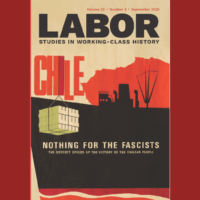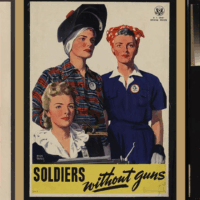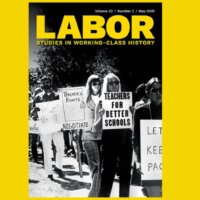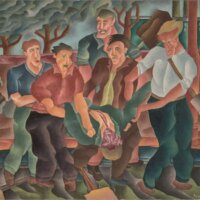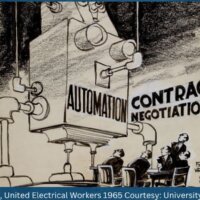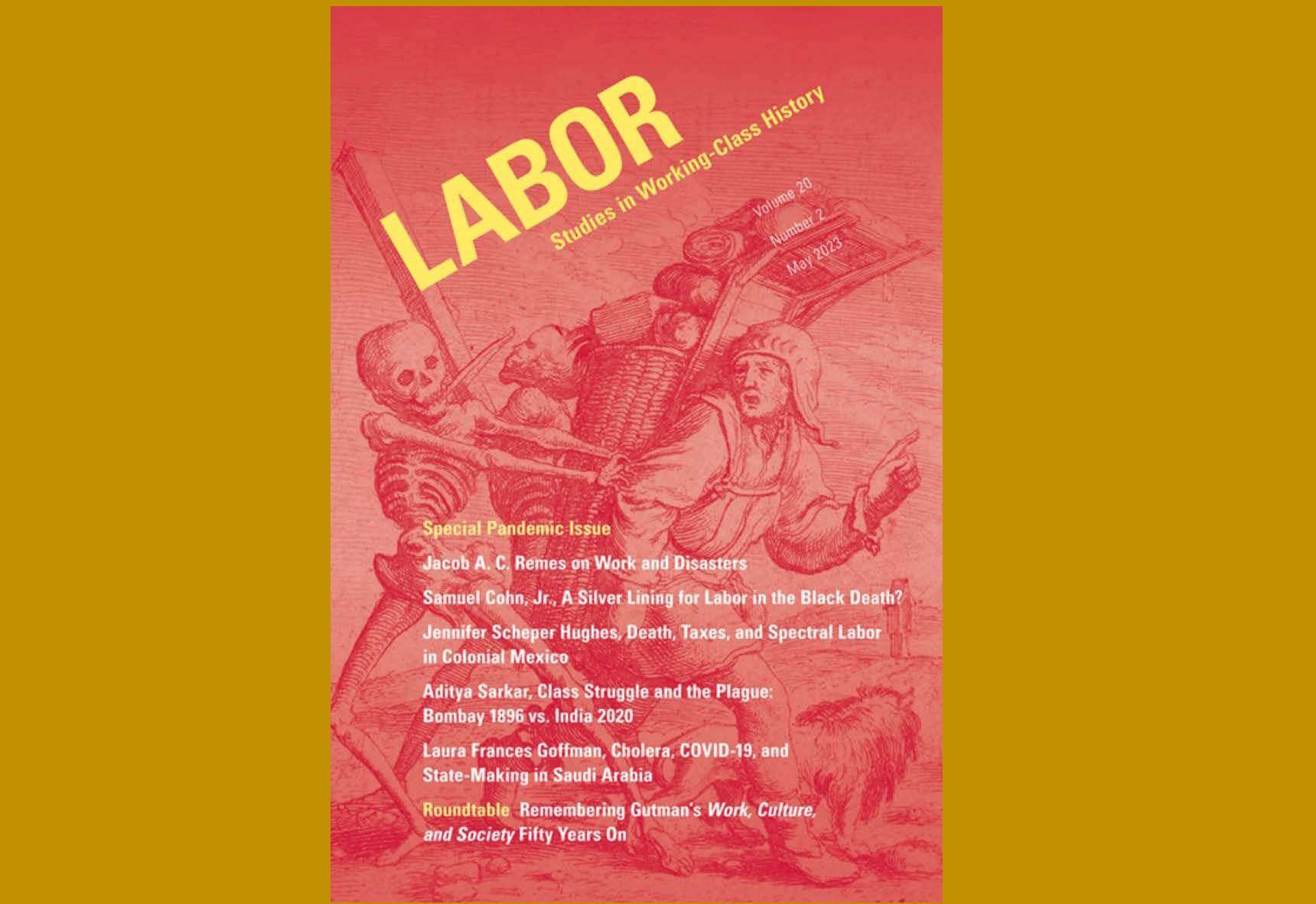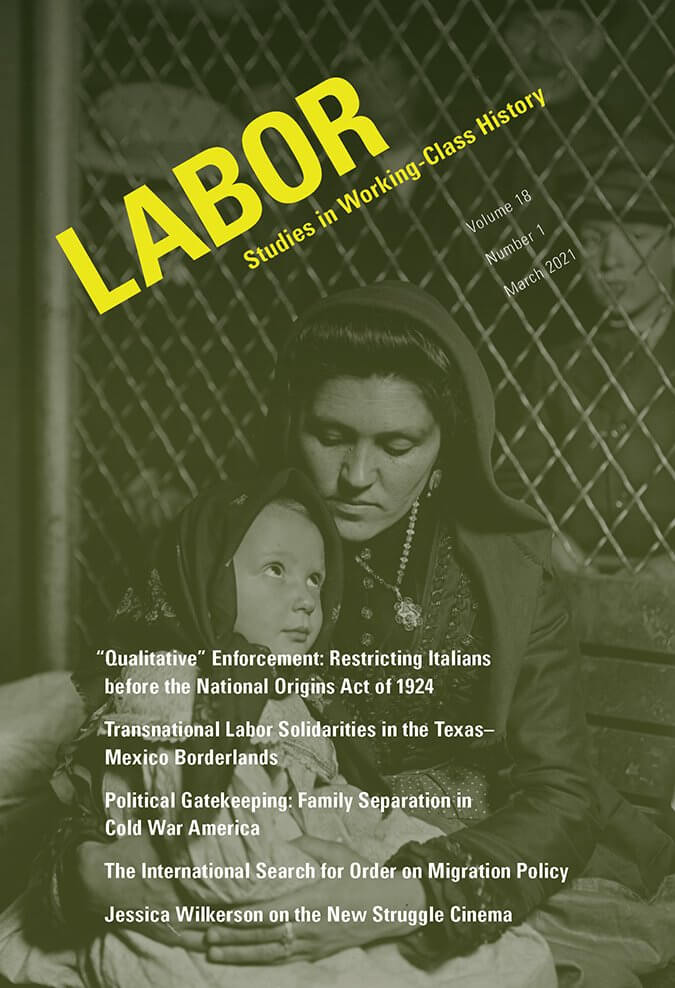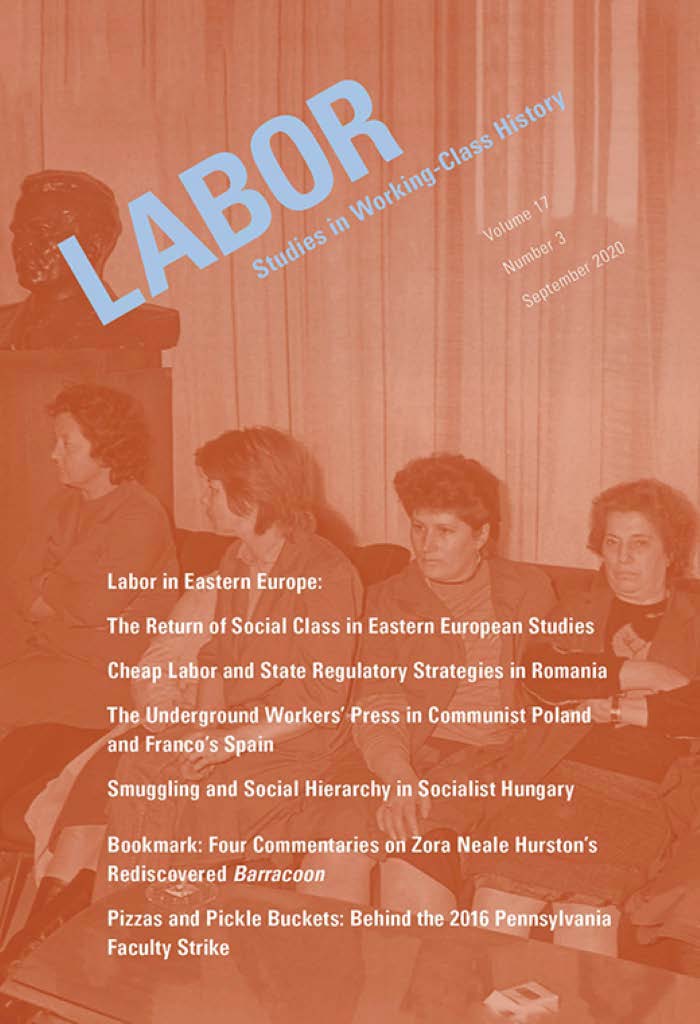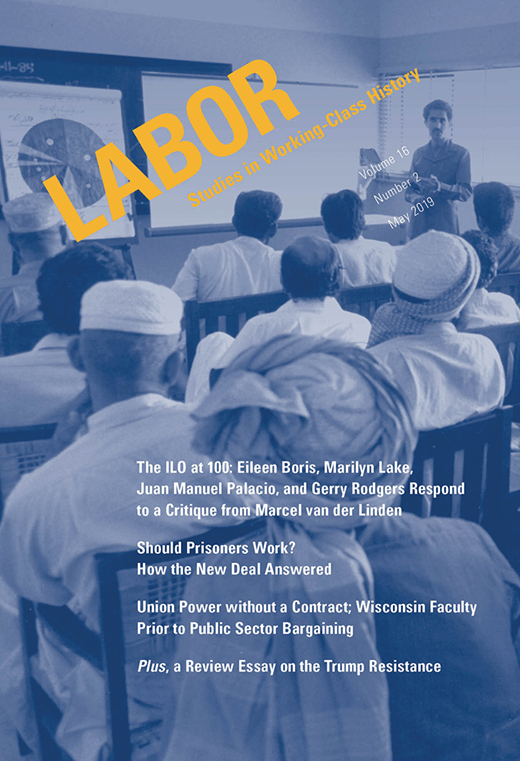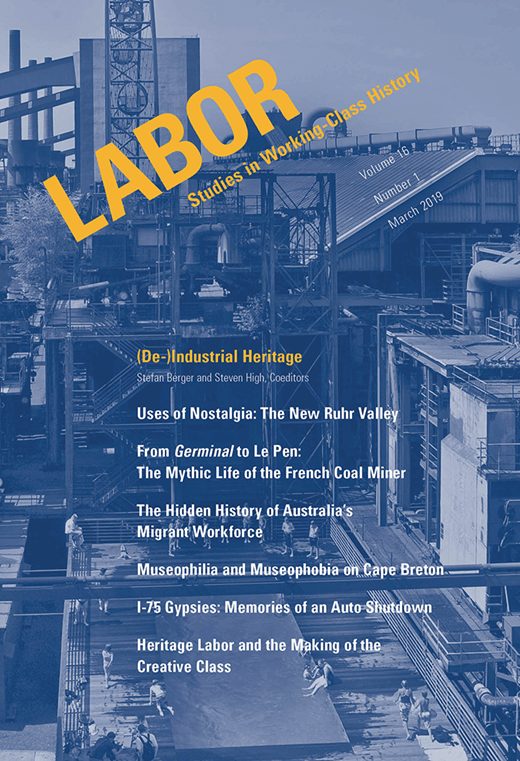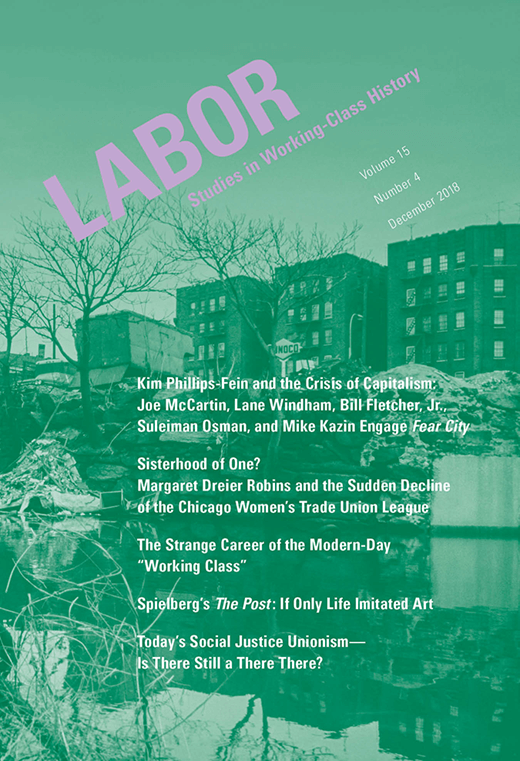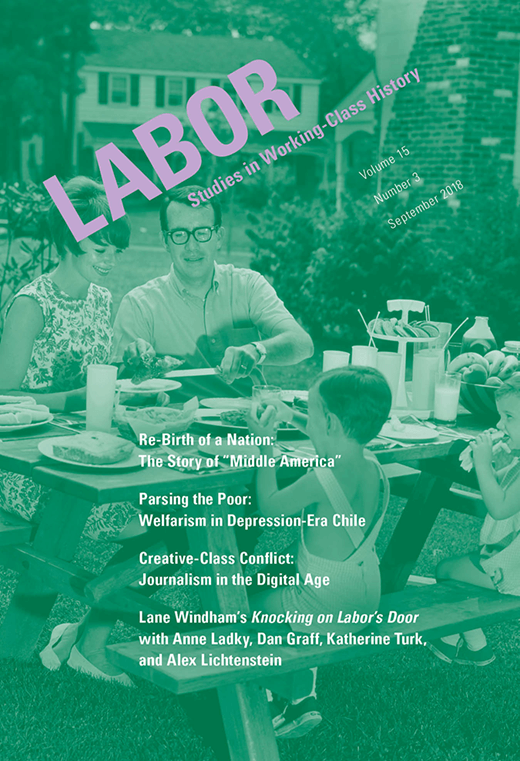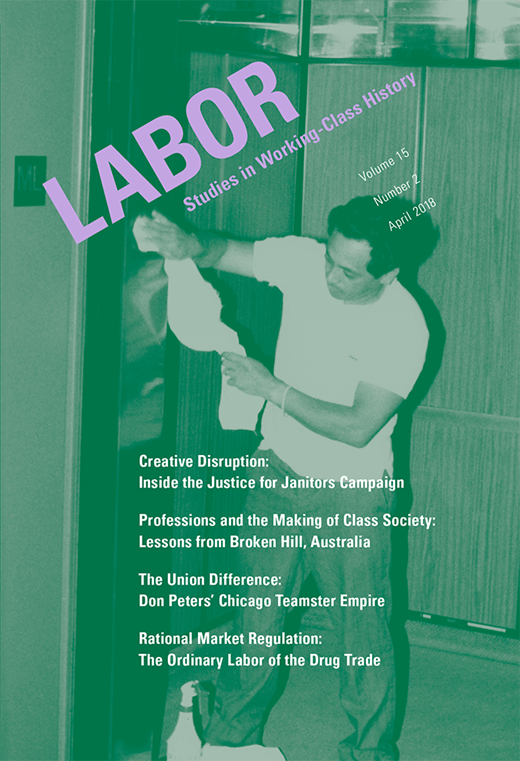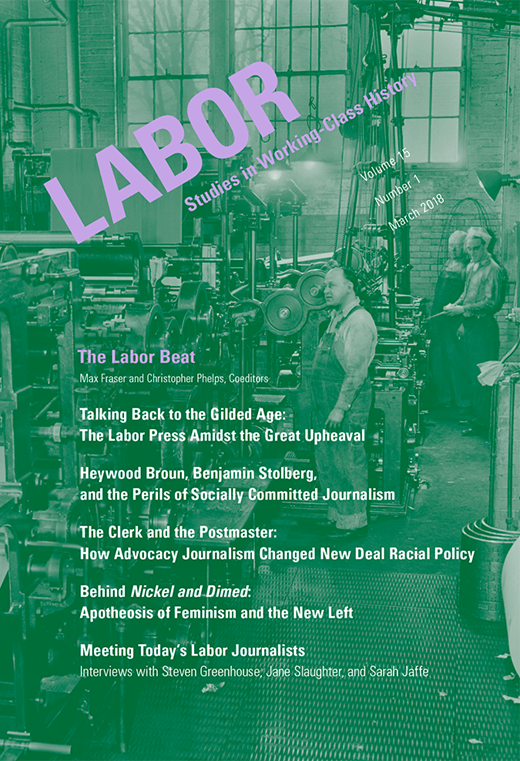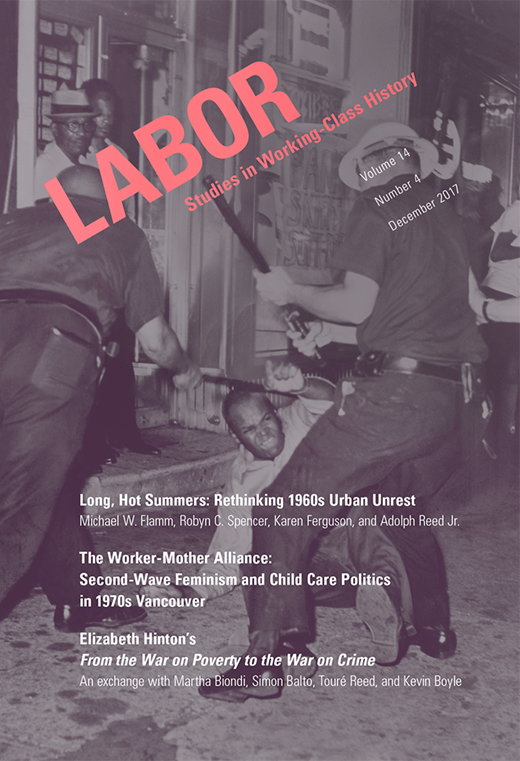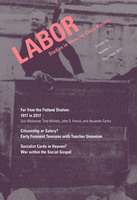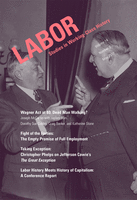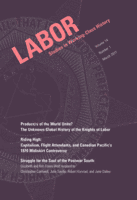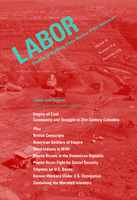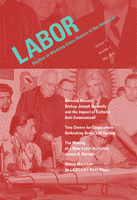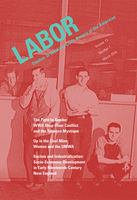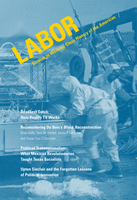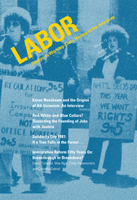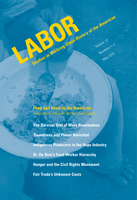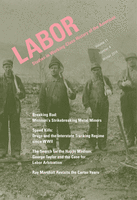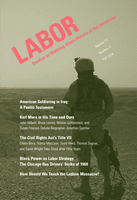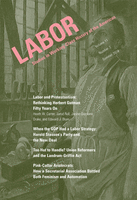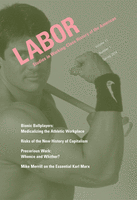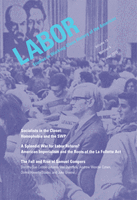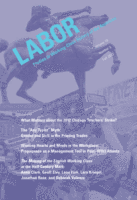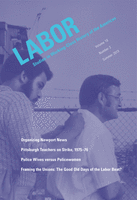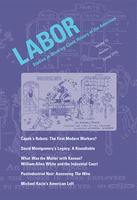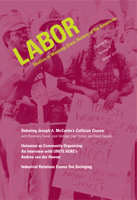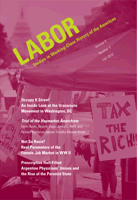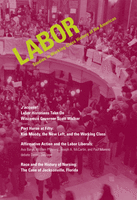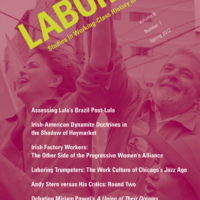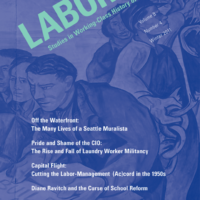Labor: Studies in Working-Class History
LABOR
The official journal for the Labor and Working-Class History Association (LAWCHA)
Winner of the Council of Editors of Learned Journals’ Best New Journal award for 2005
LABOR is published quarterly by Duke University Press. Individual subscribers and institutions with electronic access can view issues of Labor online.
As a site for both historical research and commentary, LABOR hopes to provide a scaffolding for understanding the roots of our current dilemmas. While still engaging social movements and institutions based on industrial work, LABOR gives equal attention to other critical labor systems and social contexts, including agricultural work, slavery, unpaid and domestic labor, the informal sector, and the professions. We look not only to academic historians but also to other scholars, journalists, labor educators, poets, and writer-activists for submissions.
While the scholarly article and book review serve as the foundation of LABOR, the journal contains a number of sections designed to broaden its reach and purpose. The “Contemporary Affairs” section offers labor historians concerned with the search for “a usable past” a platform to address contemporary problems of workers and their unions. “Up for Debate” allows for a focused argument by several scholars on an important theme. “The Common Verse” displays a diversity of poems that give voice to American workers. And a recent new section “Going Public” explores the current state of public history.
The journal is endorsed by SPARC (the Scholarly Publishing and Academic Resources Coalition), an initiative of the Association of Research Libraries.
Submissions
Full details on the submission of manuscripts can be located here.
Any questions concerning submissions should be directed to labor@umd.edu.
Book Reviews
LABOR reviews monographs, anthologies, films, textbooks, TV shows, and permanent museum exhibits about the working class history of the United States as well as books about other parts of the world that we think will be of interest to labor historians anywhere. We do not generally review new editions of books, document readers, memoirs, or temporary exhibits and we do not accept unsolicited reviews.
Advice to prospective reviewers
We welcome new reviewers! To volunteer, email laborreviews@gmail.com a note listing your fields of expertise and attaching a copy of your CV. Please note, though, that, except under exceptional circumstances, we do not permit people to suggest the books they want to review and we do not publish reviews by graduate students.
One exception to the solicitation rule is review essays. If you have or would like to write a review essay on a subject you think would be important to LABOR’s readers, please feel free to contact us. If you’re revising your dissertation for publication and your press wants you to take out the historiographical section, consider sending a version of it to LABOR.
Advice to authors
If you want your book to be reviewed by LABOR, please be sure we get it. Many presses neglect to send books out to journals for review. Just because you filled out a form listing the journals you want to receive your book doesn’t mean it will happen. And even presses that do regularly send us books miss books we think are relevant. We recommend that you ask your press to send you the list of journals to which they’ve sent your book and feel free to check with us at laborreviews@gmail.com to make sure we’ve received it.
Reviewers
Please submit your review in a timely fashion. It already takes a long time to get a submitted review published. We’d hate to make it any longer.
Review Essays
If you would like to write a review essay on a theme relevant to labor and working-class history, broadly conceived, please feel free to contact us. Such an essay could consider a small handful of books, or survey a subfield of labor history and include a wider range of books. If you’re revising your dissertation for publication and your press wants you to take out the historiographical section, consider sending a version of it to LABOR.
Special Features
Our Associate Editors for Arts and Media, Contemporary Affairs, Going Public, and The Common Verse (poetry) all welcome submissions as well as ideas the journal could explore. We also occasionally publish roundtable discussions on themes of importance to the field of labor and working-class history. Reach out to us at labor@umd.edu if you have ideas for any of these features.
Recent Issues
Most Recent Issues
Going Public: LABOR’s Newest Section
- January 5, 2026
Top 5 Labor Essays of 2025 available free until January 26, 2026
- December 23, 2025
Want to subscribe to LABOR?
Join or RenewLabor History and Military History: A Forum
- November 22, 2025
The Specter of War in Labor History
- October 20, 2025
Philip Tipperman, Forgotten Labor Painter of the 1930s
- April 15, 2025
Amazon’s Mechanical Turk: Historical Perspective
- September 18, 2024
Justine Modica on Caring Work in Seattle
- July 11, 2024
Reporting Work
- April 15, 2024
’Whence Automation’: An Interview
- April 5, 2024
Labor History and History of Science: Better Together
- April 2, 2024
On Equal Terms-Gender and Solidarity
- March 25, 2024
A Seat at the Table – Update Part 3
- November 24, 2023
A Seat at the Table – Update Part 2
- October 23, 2023
Read Five Top Labor Articles — free til January 31, 2022
- December 21, 2021
Labor 16.2 (May, 2019)
- May 23, 2019
Labor 16.1 (March, 2019)
- March 23, 2019
Labor 15.4 (December, 2018)
- December 23, 2018
Labor 15.3 (September, 2018)
- September 23, 2018
Labor 15.2 (May, 2018)
- June 10, 2018
Labor 15.1 (March 2018)
- June 4, 2018
Labor 14.4 (December 2017)
- May 30, 2018
Labor 14.3 (September 2017)
- August 19, 2017
Labor 14.2 (May, 2017)
- May 19, 2017
Labor 14.1 (March, 2017)
- March 19, 2017
Labor 13.3-4 (December, 2016)
- December 19, 2016
Labor 13.2 (May, 2016)
- June 27, 2016
Labor 13.1 (February, 2016)
- June 27, 2016
Labor 12.4 (December, 2015)
- January 27, 2016
Labor 12.3 (September, 2015)
- August 31, 2015
Labor 12.1-2 (May, 2015)
- May 18, 2015
Labor 11.4 (Winter, 2014)
- May 18, 2015
Labor 11.3 (Fall, 2014)
- August 29, 2014
Labor 11.2 (Summer, 2014)
- August 29, 2014
Labor 11.1 (Spring, 2014)
- August 29, 2014
Labor 10.4 (Winter, 2013)
- August 29, 2014
Labor 10.3 (Fall, 2013)
- September 23, 2013
Labor 10.2 (Summer, 2013)
- July 30, 2013
Labor 10.1 (Spring, 2013)
- March 27, 2013
Labor 9.4 (Winter, 2012)
- January 20, 2013
Labor 9.3 (Fall, 2012)
- November 12, 2012
Labor 9.2 (Summer, 2012)
- August 24, 2012
Labor 9.1 (Spring, 2012)
- August 23, 2012
Labor 8.4 (Winter, 2011)
- August 22, 2012
The official journal for the Labor and Working-Class History Association (LAWCHA)
Winner of the Council of Editors of Learned Journals’ Best New Journal award for 2005
Individual subscribers and institutions with electronic access can view issues of Labor online.
As a site for both historical research and commentary, Labor hopes to provide a scaffolding for understanding the roots of our current dilemmas. While still engaging social movements and institutions based on industrial work, Labor gives equal attention to other critical labor systems and social contexts, including agricultural work, slavery, unpaid and domestic labor, the informal sector, and the professions. We look not only to academic historians but also to other scholars, journalists, labor educators, poets, and writer-activists for submissions.
While the scholarly article and book review serve as the foundation of LABOR, the journal contains a number of sections designed to broaden its reach and purpose. The “Contemporary Affairs” section offers labor historians concerned with the search for “a usable past” a platform to address contemporary problems of workers and their unions. “Up for Debate” allows for a focused argument by several scholars on an important theme. “The Common Verse” displays a diversity of poems that give voice to American workers. And a recent new section “Whither Labor History?” analyzes the current state of labor history.
The journal is endorsed by SPARC (the Scholarly Publishing and Academic Resources Coalition), an initiative of the Association of Research Libraries.
Want to subscribe to LABOR? Join LAWCHA to get your copies!
Frequency: Quarterly
Submissions
Labor reviews monographs, anthologies, films, textbooks, TV shows, and permanent museum exhibits about the working class history of the United States as well as books about other parts of the world that we think will be of interest to labor historians anywhere. We do not generally review new editions of books, document readers, memoirs, or temporary exhibits.
Advice to prospective reviewers
We welcome new reviewers! To volunteer, email laborreviews@gmail.com a note listing your fields of expertise and attaching a copy of your CV. Please note, though, that, except under exceptional circumstances, we do not permit people to suggest the books they want to review and we do not publish reviews by graduate students.
One exception to the solicitation rule is review essays. If you have or would like to write a review essay on a subject you think would be important to Labor’s readers, please feel free to contact us. If you’re revising your dissertation for publication and your press wants you to take out the historiographical section, consider sending a version of it to Labor.
Advice to authors
If you want your book to be reviewed by Labor, please be sure we get it. Many presses neglect to send books out to journals for review. Just because you filled out a form listing the journals you want to receive your book doesn’t mean it will happen. And even presses that do regularly send us books miss books we think are relevant. We recommend that you ask your press to send you the list of journals to which they’ve sent your book and feel free to check with us at laborreviews@gmail.com to make sure we’ve received it.
Reviewers
Please submit your review in a timely fashion. It already takes a long time to get a submitted review published. We’d hate to make it any longer.
Recent Issues
[loop query=”posts_per_page=11&cat=26″ content=0 thumbnail_size=”large-thumb”]
[/loop]
Indexed/abstracted in the following: Alternative Press Index, America: History and Life, Current Abstracts, Historical Abstracts, SocINDEX, Sociological Abstracts.





